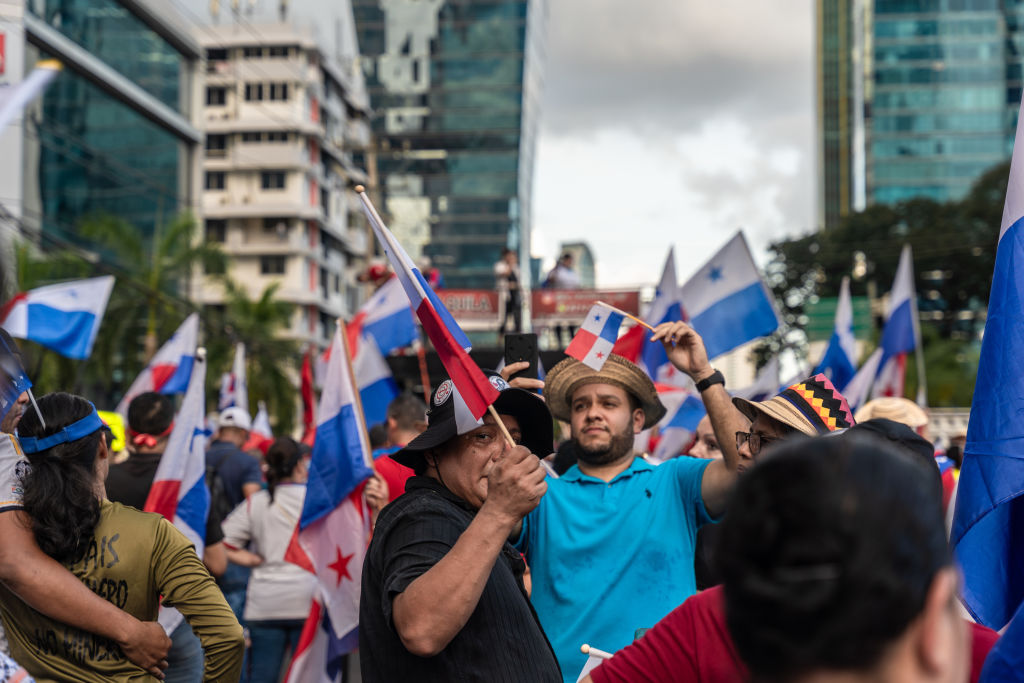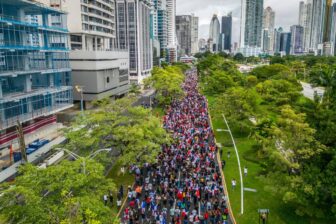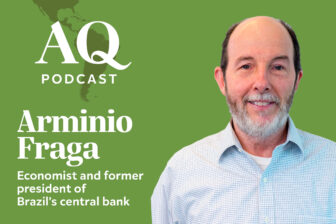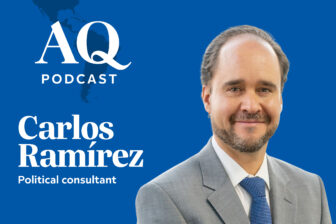Following weeks of widespread protests over a contract signed between a Canadian mining company and the government, on November 28, Panama’s Supreme Court ruled that the agreement was unconstitutional. With a presidential election six months away, the decision affects not only one of the country’s critical drivers of economic growth but also the leading candidates’ chances.
In its decision, the Supreme Court declared unconstitutional a law that approved a new contract with First Quantum Minerals (FQM), which has operated Cobre Panamá, a large open mine, since 2013, after taking an 80% equity interest in Minera Panamá, S.A., the company that holds the concession. The mining operation represents nearly 5% of Panama’s gross domestic product (GDP) and around 75% of its exports and has contributed to the nation’s post-COVID economic recovery. Still, the top court struck down the contract unanimously as demonstrations spread, demanding greater accountability and improved public services.
In the long term, the ruling creates a series of questions about Panama, both domestically and internationally. Most important among them is how the country can be a reliable destination for foreign investment in the future, considering that FQM invested $10 billion in developing what’s now Central America’s largest open mine. A costly and contentious international arbitration comes next, and Panama must lay out its legal arguments amid concerns raised by credit rating agencies about the country’s fiscal and governance stability. Leading up to the ruling, the three leading credit rating firms downgraded the country’s sovereign rating and outlook, citing business uncertainty.
The mine was a great source of revenue for the country. On the economic front, protests have already resulted in losses estimated at $1.7 billion, while many jobs will also be affected. The employment rate, which reached its pre-pandemic levels in August, is also likely to take a hit as investment across the board, particularly in the critical construction sector, will decline until the new administration charts a clear path forward.
This series of events will have political implications, and the electoral landscape may turn even more complex.
New aspirations
As former President Ricardo Martinelli (2009-14) continues to lead as the frontrunner, it’s hard to predict how the issue will affect his aspirations. A recent poll placed him over 30 points ahead of the other candidates. This may seem surprising, given that corruption is an urgent public concern in the Central American nation. In January, the U.S. State Department designated Martinelli for “significant corruption,” and he was recently sentenced to 10 years for alleged money laundering. Martinelli denies wrongdoing and continues to appeal.
He has applauded the Supreme Court’s decision to annul the mining contract at the center of the demonstrations and continues fine-tuning his political pitch according to popular demands.
The mining ruling strengthens Martinelli’s candidacy because of two factors. Timing is one of his key advantages; the presidential candidates’ registration deadline expired on July 30, before the demonstrations. Otherwise, a new outsider candidate could have run for president with a shot at winning.
Second, the negative economic impact of the court ruling—dwindling revenues and investment—will likely hit just before the May election, although the current administration has already factored it into the 2024 budget. In a lackluster economic environment, Martinelli’s track record looks stronger vis-à-vis the other candidates. During his administration, the economy expanded at an average of 6.7% per year, while foreign direct investment rose substantially, particularly in 2013, when it grew by 29% year-on-year.
However, there is still a possibility, albeit slim due to the timing of legal procedures, that the Supreme Court may uphold his 10-year prison sentence for money laundering, taking him out of the race. It’s not likely, but even if he isn’t disqualified, there are three candidates in a statistical tie for second place who could still break out, and the new environment also seems to favor two of them.
Other contenders
If Martinelli is not eligible to run, the odds for Ricardo Lombana from Movimiento Otro Camino and former President Martín Torrijos (2004-09) from the Partido Popular will substantially improve. Lombana has clear bona fides as an independent politician without ties to a highly unpopular political establishment; he ran for president as an independent in 2019 and finished a strong third. He is continuing to consolidate support as an outsider, especially among young people involved in the recent protests.
Likewise, Torrijos could galvanize support because he was an early critic of the new contract. He was also, until recently, a member of the party of current President Laurentino Cortizo, the Partido Revolucionario Democrático (PRD), which is unpopular. The PRD’s candidate for president, current Vice President José Gabriel Carrizo, is polling at around 5%.
The third candidate vying to break out is Rómulo Roux, the most conservative politician in the race. He is a former ally of Martinelli, having served in his administration as Minister of Canal Affairs and then Foreign Minister. The protests made his breakout less likely because members of his party, Cambio Democrático, supported the mining contract in Congress. Roux himself established a conciliatory position on the mine before the protests.
The leading candidates have supported the Supreme Court’s ruling, although to different degrees, showing they must ride widespread anger against the mining contract and the government to win in May.
Panama’s next president must address protesters’ myriad demands, starting by improving the quality of public services and government transparency. This will be no easy task, but democracy offers Panama hope, a window to begin anew and amend a convoluted past.
__
Valerio is a geopolitical risk strategist focusing on Latin America and the founder of Valerio Consulting Group, a boutique consulting firm in Washington, DC.








